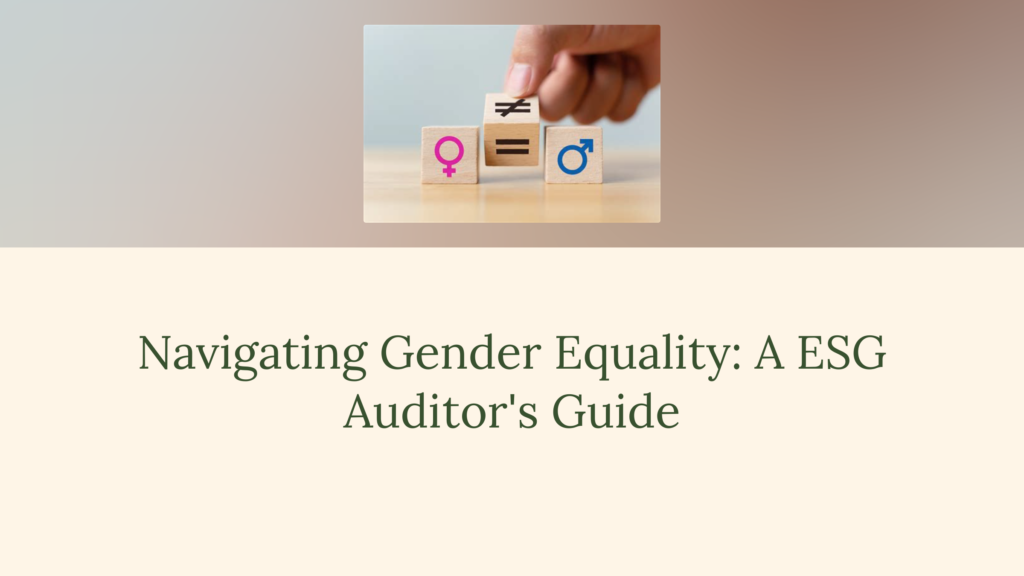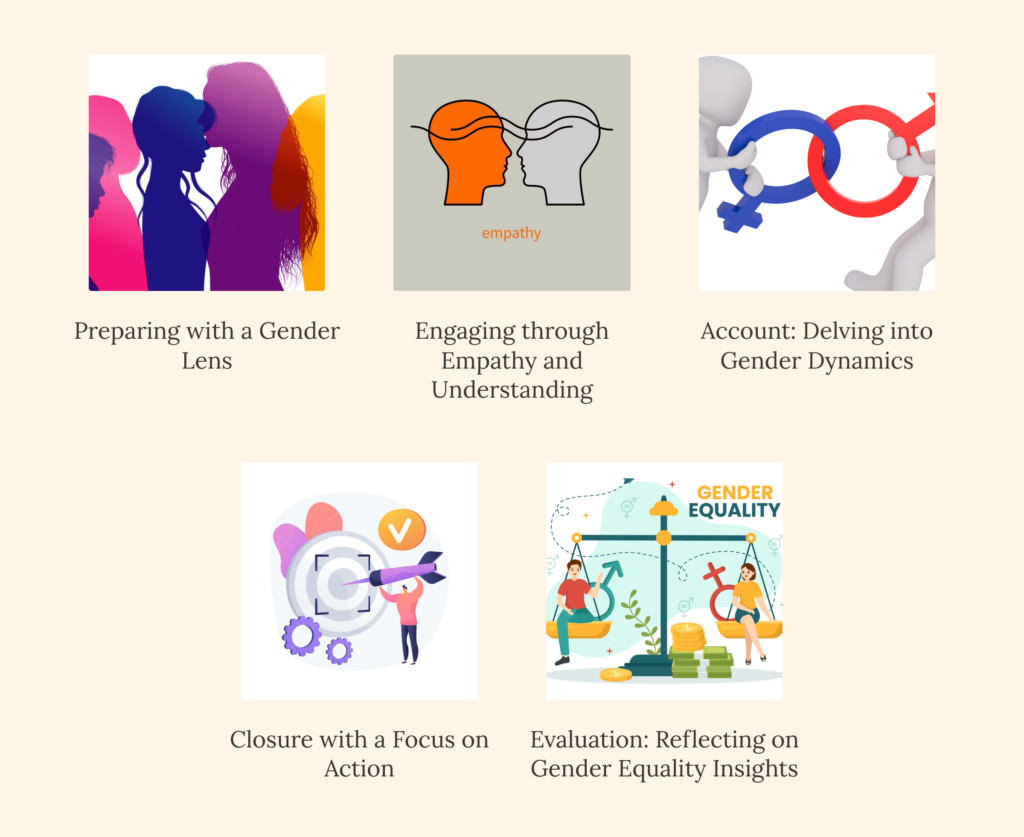In the realm of ESG audits, the pursuit of gender equality within organizations has emerged as a pivotal area of focus. Auditing for gender equality is not merely about ticking boxes but understanding and influencing the intricate dynamics that contribute to a fair and inclusive workplace. It requires a nuanced approach, informed by the principles of effective interviewing and a deep understanding of the socio-cultural factors at play. This blog draws from the comprehensive strategies outlined in the “Effective Interviewing in ESG Audits” course, applying these insights to the specific context of auditing for gender equality.

The Imperative of Gender Equality in the Workplace
Gender equality in the workplace is a fundamental human right and a critical marker of ESG. Beyond moral imperatives, gender equality drives diversity of thought, innovation, and resilience in organizations. Yet, despite progress, disparities persist, necessitated by auditors’ skilled interventions to identify, understand, and recommend pathways to equality.

Preparing with a Gender Lens
Preparation is the bedrock of any audit, more so when the focus is on gender equality. Auditors must equip themselves with a comprehensive understanding of gender issues relevant to the industry and the specific organization. This involves reviewing policies, practices, and prior audit findings through a gender lens. It’s crucial to understand not just the formal policies but the lived experiences of employees of all genders. Auditors should also familiarize themselves with local laws and international standards on gender equality and discrimination.
Engaging through Empathy and Understanding
The Engage and Explain phase of the PEACE model underscores the importance of building trust. When auditing for gender equality, creating a safe space for employees to share their experiences without fear of reprisal is critical. This entails clear communication about the audit’s purpose, confidentiality assurances, and an empathetic approach that recognizes the sensitivity of gender-related issues. Auditors must be prepared to navigate conversations around discrimination, harassment, and inequality with sensitivity and respect.
Account: Delving into Gender Dynamics
The Account phase is where the depth of understanding is developed. Here, auditors should employ open-ended questions to encourage honest discourse around gender equality. It’s essential to listen actively, seeking to understand the nuances of individuals’ experiences. Questions might explore topics such as access to opportunities, fairness in pay, workplace culture, and the representation of all genders in leadership roles. Auditors must be adept at reading between the lines, recognizing that gender biases can be subtle and systemic.
Closure with a Focus on Action
In the Closure phase, summarizing the discussion and clarifying any misunderstandings are crucial steps. This is also an opportunity to underscore the organization’s commitment to addressing gender equality issues. Auditors should leave interviewees with a sense of being heard and a clear understanding that their contributions are valued and vital to the organization’s progress.
Evaluation: Reflecting on Gender Equality Insights
The Evaluation phase is a moment for auditors to reflect on the information gathered and assess its implications for gender equality within the organization. This includes considering the systemic patterns that may contribute to inequality and the specific barriers faced by employees of different genders. The insights gained should inform comprehensive recommendations aimed at not just rectifying identified disparities but fostering an inclusive culture that celebrates and supports diversity in all its forms.
Beyond the Audit: Fostering Sustainable Gender Equality
The role of the ESG auditors in advancing gender equality extends beyond identifying non-compliance. It involves catalyzing change, guiding organizations to not only implement policies that promote gender equality but also to cultivate a culture that lives and breathes inclusivity. This might include recommending training programs, establishing clear channels for reporting discrimination, and encouraging practices that support work-life balance for all employees.
The Path Forward
Auditing for gender equality is a complex, sensitive, and profoundly impactful component of ESG audits. It requires auditors to go beyond surface-level assessments, engaging deeply with the experiences and perceptions of employees. By applying the PEACE model with a focus on gender equality, auditors can more effectively identify gaps, understand challenges, and recommend meaningful changes. In doing so, they play a crucial role in driving organizations toward not just compliance, but a genuine commitment to equality and inclusivity.
As we continue to navigate the evolving landscape of workplace equality, the role of ESG auditors in championing gender equality remains indispensable. With a blend of empathy, rigor, and a deep commitment to justice, auditors can help steer organizations towards a future where gender equality is not just an aspiration but a lived reality.
